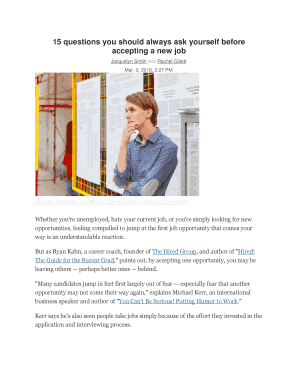Self-reflection is a powerful tool that allows individuals to delve into their innermost thoughts, feelings, and motivations. In a world that often prioritizes constant busyness and superficial interactions, the act of pausing to ponder our experiences can seem daunting yet revealing. A few fundamental questions can stimulate this internal dialogue and illuminate pathways toward personal growth and clarity.
When contemplating the essence of self-reflection, it’s pivotal to acknowledge the individual’s need to connect with their true self. This journey of introspection often begins with four essential questions. Each question acts as a guiding star, leading us through the labyrinth of our emotions and motivations. Let’s explore these inquiries in depth.
1. What Were My Accomplishments This Past Year?
Taking inventory of personal achievements can be an enlightening exercise. This question encourages individuals to celebrate victories, both grand and modest. In today’s society, many tend to focus on what they have not accomplished, allowing negative narratives to dominate their self-perception. However, reflecting on achievements fosters a sense of pride and motivation. It can shine a light on unique talents and skills that may have been overlooked in the hustle of everyday life.
Moreover, acknowledging past successes invites one to draw connections between efforts and outcomes. Did you triumph in a challenging project at work? Did you learn a new skill? Did you cultivate meaningful relationships? Each success can serve as a testament to one’s resilience, creativity, and capacity for growth. It’s crucial not to dismiss even the smallest accomplishments because they all contribute to the overall tapestry of your life experiences.
2. What Did I Learn from My Mistakes?
Mistakes, while often perceived negatively, are invaluable teachers. This question prompts reflection on past missteps, allowing you to analyze what went awry and why. It’s easy to succumb to the frustration of failure, yet it’s through these experiences that profound insights can emerge. Consider how each mistake has sculpted you into the person you are today. What wisdom did you glean? What strategies can you implement to avert similar situations in the future?
This inquiry connects to the concept of growth mindset, which posits that abilities and intelligence can evolve through dedication and hard work. Rather than viewing failures as endpoints, they transform into stepping stones toward personal development. Embracing the lessons inherent in mistakes cultivates resilience and fosters a profound understanding of one’s capacities and limits.
3. What Are My Core Values?
Understanding your core values is a fundamental aspect of self-reflection. This question encourages a deeper examination of what truly matters to you. Are your values aligned with your actions? Discrepancies can lead to feelings of discontent and confusion. In a culture rife with external expectations, taking the time to establish your personal tenets can be radically transformative.
Identifying core values can illuminate decisions and priorities in life. Perhaps family, authenticity, or creativity resonate strongly with you. Embracing these values can shape your choices, helping you navigate the intricate landscape of relationships, career, and personal aspirations. By reflecting on your values, you begin to carve a path that is both fulfilling and authentic.
Moreover, when grounded in core beliefs, you cultivate a sense of purpose that enhances the quality of your existence. It empowers you to draw boundaries around your time and energy, allowing you to focus on endeavors that align with your deepest convictions.
4. What Changes Can I Make Moving Forward?
After contemplating accomplishments, lessons learned, and core values, it’s time to consider the future, the requisite of progress and transformation. This inquiry encourages you to envision positive changes that can propel you toward your objectives. What habits can you adopt? Are there toxic relationships to release? What passions have you neglected that deserve attention?
This question invites a proactive approach to self-reflection. It embodies the spirit of accountability, urging you to take charge of your life trajectory. Transitioning from introspection to action can be daunting. Yet setting realistic, incremental goals can ease this shift. Perhaps committing to daily gratitude practices or embracing new hobbies could spark vitality in your daily existence.
Additionally, involve others in your journey of change. Share your aspirations with those in your circle who can encourage and support you. Accountability thrives in community, and leveraging the insights and experiences of others can enrich your own journey.
In conclusion, self-reflection is a continuous process, a cyclical journey of uncovering truths and fostering growth. By delving into these four pertinent questions—celebrating accomplishments, learning from mistakes, identifying core values, and envisioning future changes—you embark on a path toward greater self-awareness and authenticity. The beauty of self-reflection lies in its capacity to connect the dots of your past, present, and future, allowing you to live with intention and purpose.
Engaging in this practice not only enhances your understanding of yourself but also enriches your interactions with others. In a world that often minimizes the significance of introspection, dedicating time to self-reflection can yield profound and transformative insights. As you embark on this journey, remember that every answer leads to further questions, deliciously expanding the horizons of your self-discovery.
